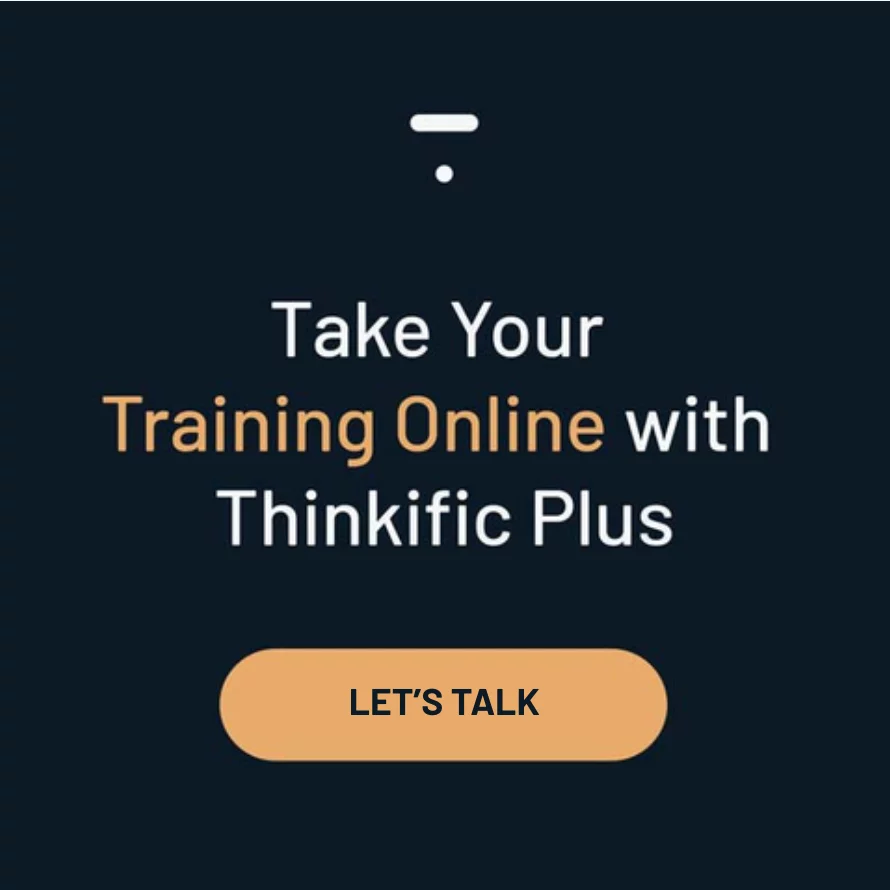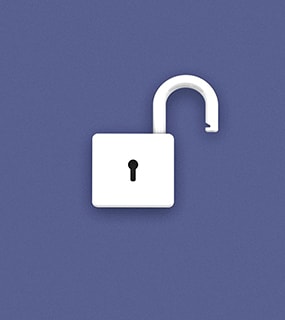As time is always in short supply for medical professionals, your healthcare organization may be wondering how they can efficiently provide other healthcare professionals and organizations with the resources they need to use your products efficiently and consistently perform their duties to the best of their ability.
Healthcare professionals are continuously learning as they upgrade skills and adapt to new protocols, products and medical procedures. The key to a successful eLearning program for your healthcare organization is to choose a learning management system (LMS) that is customizable and securely supported. But how do you choose?
Keep reading to learn about the variety of LMS options available to you and how you can get started with the best choice for your company.
What is a healthcare LMS?
A healthcare LMS is a software application that helps you deliver, track and measure online learning and development programs. It can be used for online courses, virtual classroom sessions, e-learning content, and more.
With an LMS, you can:
- Deliver online courses and training content
- Assess your students with quizzes and exams
- Track student progress and completion rates
- Measure the impact of training programs on employee performance and/or compliance
- Provide certifications and accreditations
What are the benefits of a healthcare LMS?
There are many benefits of using a healthcare LMS, including:
Convenience and flexibility
Your students can access e-learning courses and materials at any time, from any location.
Improved employee performance
With an LMS, you can deliver targeted training that meets the specific needs of your prospects. This can help your organization improve factors such as product adoption and satisfaction, ultimately helping your client’s team reach organizational goals. An LMS also helps improve your customer onboarding process and retention, helping to reduce your churn rate.
Cost savings
An LMS can help you save on training costs by delivering educational content electronically. Additionally, an LMS can help you reduce travel and accommodation expenses associated with traditional classroom-based training.
Compliance status
With an LMS, you can ensure that all of your prospects, partners and customers have completed any necessary training courses and are up-to-date on the latest policies and procedures when it comes to using your products or services. This can help reduce your risk of compliance issues.
Streamlined customer onboarding
If you sell products or services to customers, an LMS can help you deliver training and support materials to them. This can help improve customer satisfaction and reduce your support costs.
Tracking progress
With an LMS, you can track student progress and completion rates. This data can help you identify areas where your students may need additional training. Additionally, it can help you measure the impact of your training programs on your students according to your goals.
Common features of Healthcare LMS Software
When considering an LMS for your healthcare organization, there are a few key features to look for:
- Compliance and certification management: The LMS should have the ability to track and manage compliance-related training, such as mandatory annual courses. Additionally, it should be able to track student certification status and expiration dates. An LMS like Thinkific Plus has the ability to help you manage both.
- E-learning content management: The LMS should have the ability to host and deliver a variety of e-learning content. Many institutions use SCORM (which stands for Sharable Content Object Reference Model) content, video, and audio files. The LMS should have the ability to integrate SCORM in order to track student progress and completion rates.
- Student training records: The LMS should have the ability to store student training records in a central location. This will help you keep track of which students have completed which courses and measure the impact of your programs.
- Video conferencing: The LMS should have the ability to host live video sessions or webinars. This feature can be used for virtual classroom sessions, online training, and customer support.
- Mobile learning: The LMS should have mobile capabilities for students to access training courses and materials. This will help students stay up-to-date on the latest policies and procedures while they are on the go.
- Social Learning/Community: The LMS should have a social learning component that allows students to connect with each other and share information. This can help improve student engagement and retention.
- Gamification: The LMS should provide the ability to gamify the learning experience. This can help improve employee engagement and motivation.
- Knowledge evaluation: The LMS should have the ability to assess student knowledge through quizzes and surveys. This can help you identify areas where students need additional training.
- Progress reporting: The LMS should have the ability to generate reports on student progress and completion rates. This data can help you measure the impact of your training programs on student performance.
- Communications: It is beneficial to use an LMS that has the capability to send students communications such as emails and notifications. These features can be used to remind students of upcoming training courses or deadlines.
Try using this LMS feature comparison evaluation checklist to help compare Learning Management Systems you’re interested in:
Top 10 HealthCare LMS
Now that you know what to look for in a Healthcare LMS, here are the top ten healthcare learning management systems to explore.
Thinkific Plus

Thinkific Plus has all of the features you need to deliver effective training to your employees. What sets Thinkific Plus apart from other Healthcare LMS platforms is its flexibility.
You can use it to deliver various content types, including e-learning courses, videos, and audio files. Additionally, it can be used to host live video sessions or webinars.
Plus, Thinkific Plus has mobile capabilities so your students can access training courses and materials to stay up-to-date on the latest policies and procedures while they are on the go. Thinkific Plus also offers a social learning platform that allows students to connect with each other and share information. This can help improve student engagement and retention.
Key features:
- Easy-to-use site builder & editor
- Social community
- Variety of content capabilities
- Flexible and customizable
- Multiple applications including gamification apps available through the Thinkific App Store
- SSO (Single Sign-On)
- Advanced security
Pros:
- Ability to host multiple learning environments in the same account via the Plus Portal
- Multiple course payment options
- Wide variety of apps from the Thinkific App Store to support your needs and customize your offering
- Offers hosting features like marketing, course management, and payment handling
- Quick time to value allows you to get your learning up and running as soon as possible
- Dedicated and ongoing 1-1 support from the Customer Success Team (only available on the Thinkific Plus plan)
Cons
- You will have to market your course yourself
- While not SCORM compliant, allows for the addition of SCORM via a multi-media lesson
Best for: Thinkific Plus is the best platform if you are looking to replicate a classroom experience online. Of all of the options, it is the easiest to set up and use for both educators and students, and is the most scalable for multiple instructors, admins, and support staff.
Price Range: Ready to make an informed decision on your next LMS? Request a call with Thinkific Plus experts today to discuss pricing options and get a live demo. Elevate your online learning with Thinkific Plus – your success, our expertise.
Moodle
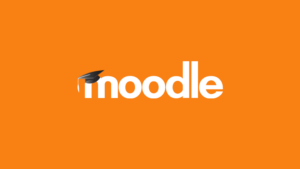
Moodle is a popular open-source LMS that healthcare organizations around the world have used. It has all the features you need to deliver effective employee training if that is your use case. Moodle offers a variety of course modules, including e-learning courses, video, and audio files. Additionally, it can be used to host live video sessions or webinars.
Moodle has a mobile app that employees can use to access training courses and materials, and offers a social learning platform that allows employees to connect with each other and share information. This can help improve employee engagement and retention.
Key features:
- Open-source
- Mobile app
- Social community
- Variety of content capabilities
- Flexible
Pros:
- Fairly inexpensive
- Can be customized to meet your needs
- Has a large user community
Cons:
- Can be challenging to set up and maintain
- Requires a lot of technical expertise
Best for: Moodle is the best platform if you are looking for an open-source LMS that can be customized to meet your specific needs. It’s also a good choice if your team has the technical expertise to set it up and maintain it.
Absorb LMS
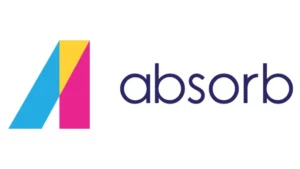
Absorb LMS is a cloud-based LMS with all the features you need to deliver effective employee training. It offers a variety of course modules, including e-learning courses, video, and audio files. Like others, it can be used to host live video sessions or webinars.
Absorb is known for its flexibility and customer service, which is rare in this space. Additionally, it integrates with several HRIS and other business applications.
Key features:
- Cloud-based
- Flexible
- Integrates with HRIS & other business apps
- Social media sharing
Pros:
- Flexible
- Great customer service
- Integrates with other business applications
Cons:
- More expensive than some other options
Best for: Absorb is the best platform if you are looking for an LMS that is flexible and offers great customer service. It’s also a good choice if you need an LMS that integrates with other business applications.
Docebo
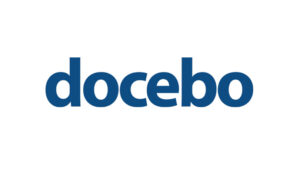
Docebo is a cloud-based LMS equipped to create and manage content, deliver training, and measure business growth. It focuses on asynchronous learning and AI-based training programs.
Docebo is cloud-based and also offers a mobile app for easy learning on the go.
Key features:
- Cloud-based
- Mobile app
- Focuses on asynchronous learning
- AI-based training programs
Pros:
- Inexpensive
- Offers a free trial
Cons:
- Limited features in the free trial
Best for: Docebo is the best platform if you are looking for an LMS that focuses on asynchronous learning and offers AI-based training programs. It’s also a good choice if you are on a tight budget.
SAP Litmos
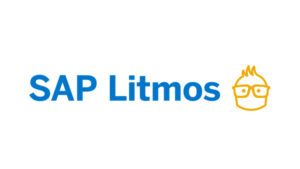
SAP Litmos is a cloud-based LMS that focuses on employee training with a personalized approach. The platform offers custom branding, multiple language support, and sales training management for each user.
While personalization can be key for some, SAP Litmos doesn’t allow for less than 150 users, making this a more expensive choice in LMS platforms.
Key features:
- Cloud-based
- Personalized learning
- Custom branding
- Multiple language support
- Sales training management
Pros:
- Offers a free trial
Cons:
- A minimum of 150 users required
- More expensive than some other options
Best for: SAP Litmos is a good platform to consider if you are looking for an LMS that offers personalized learning and custom branding. It’s also a good choice if you need support for multiple languages.
HealthStream
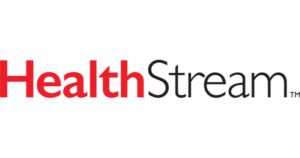
HealthStream is a cloud-based LMS that offers a wide range of features for healthcare organizations. These include compliance tracking, performance management, and patient engagement.
One key feature of HealthStream is that it offers simulation capabilities for healthcare professionals. This can be beneficial for those who want to learn in a more hands-on way.
However, HealthStream doesn’t offer a free trial, and pricing is only available upon request.
Key features:
- Cloud-based
- Compliance tracking
- Performance management
- Patient engagement
- Simulation capabilities
Pros:
- Hands-on learning opportunities
Cons:
- No free trial
- Pricing not available upfront
Best for: HealthStream is the best platform if you are looking for an LMS that offers compliance tracking, performance management, and patient engagement. It’s also a good choice if you want an LMS with simulation capabilities.
Totara Learn
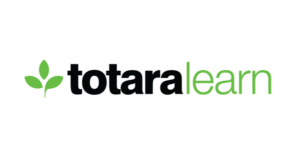
Totara Learn is an open-source LMS that focuses on delivering engaging learning experiences. The platform offers many features, including social learning, certification management, and mobile learning.
One key advantage of Totara Learn is that it’s highly customizable. This means that you can tailor the learning experience to fit your specific needs.
However, Totara Learn is a more expensive option, and it’s also not as user-friendly as some other LMS platforms.
Key features:
- Open-source
- Social learning
- Certification management
- Mobile learning
- Highly customizable
Pros:
- Can be tailored to fit your specific needs
Cons:
- More expensive than some other options
- Not as user-friendly as some other platforms
Best for: Totara Learn is the best choice if you are looking for an open-source LMS that offers social learning, certification management, and mobile learning, all with customizable options.
ProProfs LMS
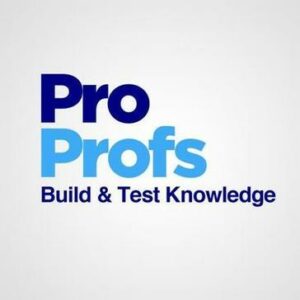
ProProfs LMS is a cloud-based platform that offers a wide range of features, including quizzes, assessments, and surveys. The platform also offers custom branding and integration with third-party applications.
While ProProfs LMS offers a free trial, the platform is not as user-friendly as other LMS options.
Key features:
- Cloud-based
- Knowledge-based learning
- Custom branding
- Integration with third-party applications
Pros:
- Offers a free trial
Cons:
- Not as user-friendly as some other platforms
Best for: ProProfs LMS is the best platform if you are looking for an LMS with knowledge-based learning, custom branding, and integration with third-party applications.
Paradiso LMS
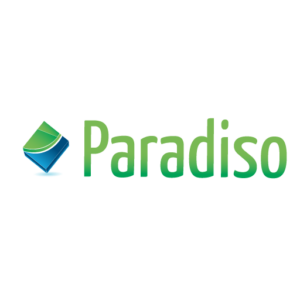
Paradiso LMS is a cloud-based platform that offers a wide range of features, including Gamification, SCORM compliance, and social learning. The platform also offers a free trial.
One advantage of Paradiso LMS is that it’s very user-friendly. The platform is also SCORM compliant, which is important for those who need to ensure compliance with eLearning standards.
However, Paradiso LMS is a more expensive option and it doesn’t offer as many features as some other LMS platforms.
Key features:
- Cloud-based
- Gamification
- SCORM compliance
- Social learning
Pros:
- User-friendly
- Free trial available
- SCORM compliant
Cons:
- More expensive than some other options
- Doesn’t offer as many features as some other platforms
Best for: Paradiso LMS is the best choice if you are looking for a user-friendly platform that offers a free trial. The platform is also a good choice if you need a SCORM-compliant LMS.
TalentLMS

TalentLMS is a cloud-based platform that offers a wide range of features, including Gamification, social learning, and certification management. The platform also offers a free trial.
One advantage of TalentLMS is that it’s very user-friendly. The platform is also one of the most affordable LMS options.
However, TalentLMS doesn’t offer as many features as some other LMS platforms.
Key features:
- Cloud-based
- Gamification
- Social learning
- Certification management
Pros:
- User-friendly
- Free trial available
- Affordable
Cons:
- Doesn’t offer as many features as some other platforms
Best for: TalentLMS is the best choice if you are looking for a user-friendly platform that offers a free trial and affordable upgrade options.
Examples of Healthcare Organizations using an LMS
Now that we’ve gone over some of the best healthcare LMS platforms let’s take a look at some examples of healthcare organizations using an LMS.
In the face of the growing COVID-19 pandemic, the Mohammed Bin Rashid University of Medicine and Health Sciences (MBRU) launched an interactive online course called MBRU Community Immunity Ambassador Program. With the help of Thinkific Plus, the program has reached more than 940,000 people from all over the world and is showing no signs of slowing down.
Another example is IntelyCare, a nurse staffing software with a proven track record of addressing critical problems facing nursing professionals. When COVID-19 began to spread, staff members at skilled nursing and assisted living facilities found themselves underprepared for handling the growing pandemic with no affordable educational training to turn to. Through Thinkific Plus, IntelyCare launched its first online course, reaching more than 500,000 students across 30+ countries.
Challenges with Healthcare LMS Software (what to watch out for)
When choosing an LMS for your healthcare organization, it’s important to keep in mind the challenges that come with managing healthcare content.
One of the biggest challenges is making sure that your content is compliant with HIPAA regulations. Any LMS you choose should have features in place to help you manage and protect sensitive data.
Another challenge is integration capabilities. Many healthcare organizations use a variety of software applications to manage their business. When choosing an LMS, make sure that it can integrate with the other software applications you’re using.
It’s almost essential to keep in mind that your LMS will need to be able to handle large amounts of data. If you have a lot of “students” you are looking to educate, you’ll need an LMS that can handle a large number of users.
In addition to being able to manage and migrate data, it’s crucial that your LMS provides a secure platform for the data. Any LMS you choose should have features in place to keep your data secure, such as data encryption and user authentication.
Selecting and buying your HealthCare LMS
Now that you know the challenges to look out for, let’s take a look at how to select and buy your healthcare LMS.
The first step is to decide what features you need. As we mentioned before, make sure that the LMS you choose has features in place to help you manage and protect sensitive data. You’ll also want to make sure that the LMS can integrate with the other software applications you’re using.
Once you’ve decided on the features you need, it’s time to compare products and prices. When comparing prices, be sure to consider the cost of hosting, support, and training. After you’ve done your research, the best way to get a feel for a product is to book a demo.
When considering your options, it’s important to prioritize scalability and customer support. You’ll want to ensure that the LMS you choose can grow with your healthcare organization. Customer support is also essential, as you’ll want to be able to get help when you need it.
Cover all your healthcare training needs
If you’re looking for an LMS platform to host your Healthcare or HealthTech organization’s product or customer education training, we recommend Thinkific Plus.
With its wide range of features and affordable pricing, Thinkific Plus is the perfect choice for your organization. We’re proud to offer a platform that is both user-friendly and scalable.
Conclusion
Thank you for exploring these LMS options with us.
Making the right choice is crucial for your online learning success. If you’re ready to take the next step and get personalized guidance, pricing details, and a live demo, don’t hesitate to reach out to our experts.
Request a call with a member of our Thinkific Plus solutions team today, and let us help you unlock the full potential of your online learning journey. Learn how you can attract new customers and increase your customer retention and success.




